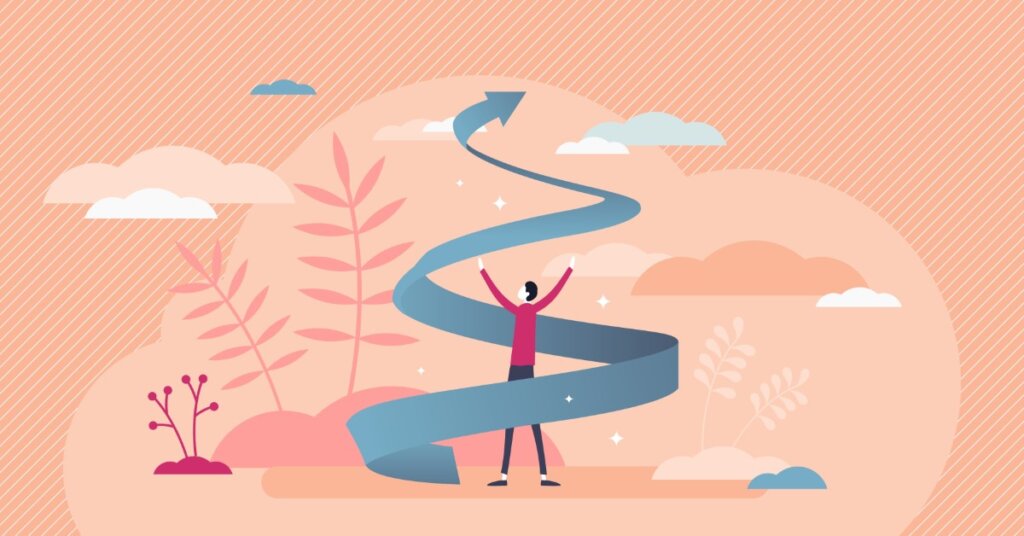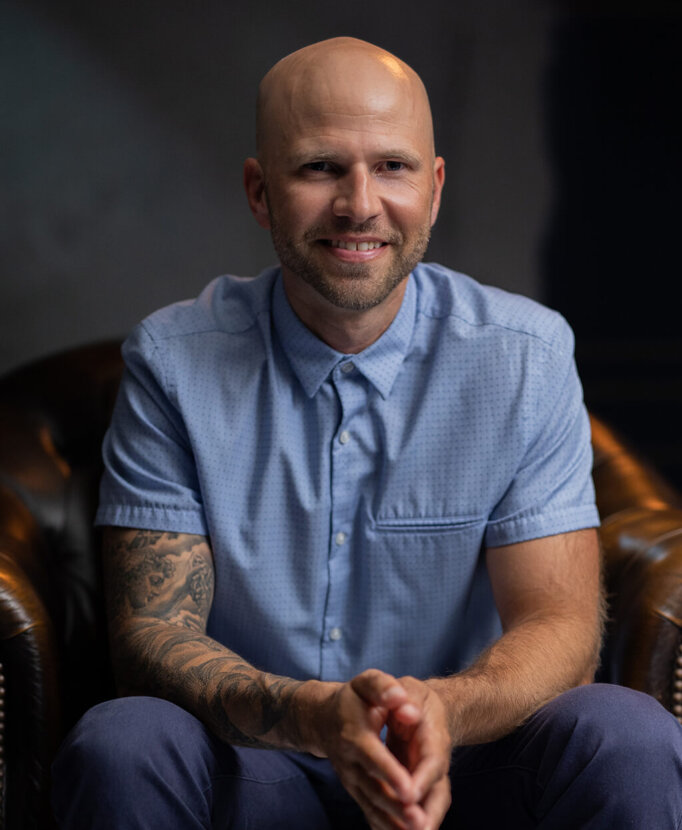Celeb Shot
Finding Strength Through Struggles
Former Nike Brand Marketing Executive Jordan Rogers shares his inspiring journey through substance abuse as he transformed his struggles into strengths. He highlights the lessons learned through adversity and the importance of connection in personal and professional growth.

When I was dying of heroin addiction, I had no idea that my struggles could become a super power later in life. Jails, institutions, death: all viable outcomes for the “life” I was living. A future Brand Marketing Executive at Nike? No chance. A devoted husband, father, mentor? No way.
No one could see that my struggles would eventually become my greatest strength, but that’s exactly what happened.
Throughout my 20 years of recovery and eventually a career in Brand Marketing at Nike, I learned a valuable lesson: we admire people in their strengths, but we connect to others in our struggles.
I was fortunate to be raised in a good home with supportive parents who enabled me to play every sport imaginable. I grew up in the Michael Jordan era, and my wall was adorned with all of my favorite athletes: not coincidentally, they were all Nike athletes.
Unfortunately, I grew up in the first generation of two opposing forces: sport specialization and the opioid epidemic.
Adolescence brings challenge for all of us: awkward moments, heartbreaks, and internal turmoil. At the exact moment that I needed a positive outlet surrounded by other kids on the same path, I failed to excel enough to keep playing sports. This left a massive vacuum in my life and a wound that needed healing.
In the absence of my positive outlets, I turned to an effective, but destructive method of pain killing: heroin. The party didn’t last long as I got arrested for the first time at 14 for a minor drug possession charge. I got arrested again at 19 for the same offense. After numerous failed attempts at various treatments to stay clean, the State of Texas locked me up for over a year.
While my peers graduated college, I spent 13 months, or 396 days, incarcerated. This was the lowest of lows.
But, the upside of the bottom is that there’s only one way to go.
I began to slowly rebuild my life from that moment. And I realized what a privilege I got at the ripe age of 22. I had a year to sit and think about my future. What did I want my life to look like?
This began a long journey of repair. First, with spiritual growth, then the power of health and wellness. My jailhouse workouts eventually led me to become a personal trainer. Community college classes led to a 4 year degree. A degree led to studying abroad. And a closed door led me to dream bigger: with nothing to lose, what if I could get a job at Nike?
Five years of hustle earned me the entry level role at Nike, Inc. at the age of 30. By 40, I was a young executive in marketing and on the fast track to senior leadership.
My time at Nike reinforced 3 important lessons.
1. The Power of Story
Nike does not sell sneakers, they sell stories. Stories of adversity, rebellion, overcoming obstacles and achieving greatness. Stories are the way we make sense of the world. They’re also the way we connect with others, so it requires us to share them.
2. Strengths Are Admirable
Admiration, and even adoration, is a common human desire, but it’s not the deepest desire.
3. Struggles Allow Service
Our deepest desire is connection. Even our heroes struggle and need to feel understood. In my case, I got to work side by side with 2 sets of heroes. The first was the top athletes and artists that the world respected. The second was the incredibly talented people who made up Nike’s global workforce.
Once I made it inside these tall walls, I felt like an impostor. An ex heroin addict with more charges than trophies in my past? I had little to nothing in common with this people…or so I thought.
The closer I got to the top pros, I realized they were bruised or broken in their own ways. Fame and fortune can’t cover wounds, they just exacerbate them. And the coolest job in the world can’t shield people from life.
But the only way I got to see this was by sharing my story.
13 years into my recovery and 5 years into my Nike Inc. career, no one knew my story publicly.
I was invited to tell it through a short film. What seemed like a risk to my career served as the exact opposite.
Once I took the risk of sharing my struggles, I got the opportunity to serve others around me constantly. Suddenly, people came to me for all kinds of reasons. They shared their own stories of hurt, loss, or family challenges. I became a trusted advisor, a voice on committees to help the company improve the culture. My career took off in a whole new way and opportunities I never knew possible came about.
Serving others through story doesn’t only apply to our individual lives. It applies to our companies and organizations as well. All organizations are born out of a desire to solve problems in our world.
By understanding our own struggles, we can find unique places to serve: both our customers and each other. And before we know it, this ability to connect and serve becomes our biggest strength.
WSB works with thousands of respected influencers, thought leaders, and speakers each year and our experienced sales team is committed to the success of your event. For more substance abuse speaker ideas, please contact us.
